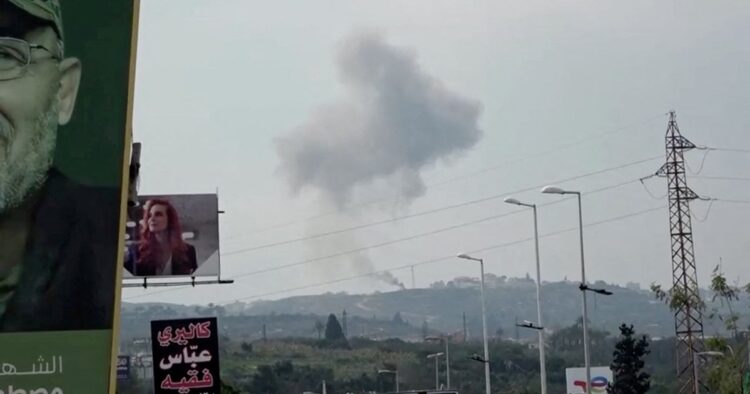In a recent development, Hezbollah, a group based in Lebanon, has launched a series of rockets towards an Israeli aerial surveillance base. This action comes as a response to what Hezbollah perceives as the deepest Israeli military incursion into Lebanese territory. Fortunately, there have been no immediate reports of casualties resulting from these rocket launches.
The conflict escalated when Israeli warplanes targeted the Bekaa Valley on Monday, sparking a series of hostilities across the border. This escalation has roots in the conflict in Gaza that started back in October. Following the Israeli airstrikes, Hezbollah responded with rocket fire on both Monday and Tuesday.
International peacekeepers stationed in Lebanon, under the banner of the United Nations, have called for an immediate cessation of hostilities. They fear that the recent events could jeopardize any potential political resolution to the conflict. The United Nations Interim Force in Lebanon (UNIFIL) has observed a concerning shift in the exchange of fire and is actively engaging with all parties to de-escalate tensions and prevent further misunderstandings.
Joanna Wronecka, the United Nations Special Coordinator for Lebanon, has echoed calls for de-escalation. Wronecka warns that the increasing frequency of exchanges in firepower heightens the risk of a wider and more devastating conflict. She stresses the importance of reducing tensions to avoid a broader conflagration.
Hezbollah has signaled its willingness to halt fire on Israel under certain conditions. According to sources familiar with Hezbollah’s stance, the group would agree to a ceasefire if its Palestinian ally, Hamas, accepts a proposal for a truce with Israel in Gaza. However, Hezbollah remains firm that it will retaliate if Israeli forces continue to shell Lebanese territory.
The targeted base in Tuesday’s attack by Hezbollah is the same one that the group has struck in previous incidents. Despite the escalation, there have been no indications of wider military retaliation by Hezbollah at this time. Israel, on its part, has stated that its strikes in the Bekaa Valley on Monday were in response to the downing of an Israeli drone by Hezbollah forces.
Israeli Defense Minister Yoav Gallant has announced plans to intensify attacks on Hezbollah in the event of a ceasefire in Gaza. Gallant has stated that Israel will continue its operations until Hezbollah withdraws entirely from the border region. These developments indicate a troubling escalation in tensions between Israel and Hezbollah, with the potential for further violence if diplomatic efforts fail to gain traction.

















Comments